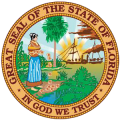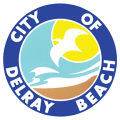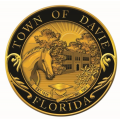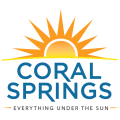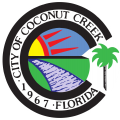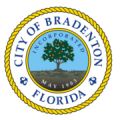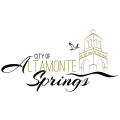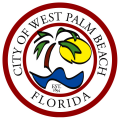The past decade has seen a steady increase in the quantity and quality of Florida's nursing programs. Nursing is a popular career option in the state, with strong employment prospects and competitive pay. It is important for aspiring nurses to understand the different nursing roles, certifications required, and education programs available.
Nursing assistant
Florida
We've organized a comprehensive list of Florida nursing schools. Below you'll find information on specific nursing programs such as LPN certificates and ADN, BSN, and MSN degrees. You'll also find a profile of nursing education and careers in each major Florida city.
Florida nursing programs and careers
City-specific information
To secure a nursing position in Delray Beach, Florida, you will need to earn a certificate or degree in your chosen nursing role. The most common nursing roles in the West Palm Beach-Boca Raton-Delray Beach, metropolitan area are registered nurse (RN), licensed practical nurse (LPN), and certified nursing assistant (CNA). Based on the most recent Bureau of Labor Statistics (BLS) figures, this metro area is home to a noteworthy 12,530 RNs.
With more than 250,000 active licensed registered nurses, (RNs), nursing is the largest profession licensed and regulated by the Florida Department of Health's Division of Medical Quality Assurance (MQA). The state is listed among the nation’s top five states with the highest employment levels for RNs and licensed practical nurses (LPNs). As of 2017, Florida was home to 45,000 licensed practical nurses and even more certified nursing assistants (CNAs). At nearly 91,000 strong, Florida has the nation’s third highest employment level for CNAs.
With a population of 66,645, Daytona Beach is one of the top 50 largest cities in Florida. Part of the Deltona–Daytona Beach–Ormond Beach, metropolitan area, Daytona Beach provides easy access to the more than 623,000 people living in the area. The population in this growing metro area has increased 56 percent since 2000, with those 55 and over accounting for nearly 40 percent of the population. With an increasing aging population, the metro area is a great place for aspiring registered nurses (RNs), particularly adult gerontology nurse practitioners (AGPN).
Davie, Florida, is part of a large metropolitan area that is home to approximately 14,800 registered nurses (RNs), 2,860 licensed practical nurses (LPNs), and 5,310 certified nursing assistants (CNAs). RNs here typically hold an associate degree in nursing (ADN), a bachelor of science in nursing (BSN) or a master of science in nursing (MSN). A license is required in all states and depending on the specialty area, certification may be required as well. Critical care, cardiac, and emergency and trauma are common specialties.
Coral Springs, Florida, is home to more than 130,000 residents. Around 52 percent of these residents are age 35 and over. Of this population, nearly 30 percent are age 50-65 and older. Because it has such a large aging population, Coral Springs houses some of the nation’s top healthcare providers. Broward Health Coral Springs, University Hospital & Medical Center, and Northwest Medical Center are just a few.
Home to more than 59,000 inhabitants, Coconut Creek, Florida, has a sizable nursing population, with registered nurses (RNs), licensed practical nurses (LPNs), and certified nursing assistants (CNAs) leading the pack. Some 14,800 RNs live in the metro area, along with 2,860 LPNs, and 5,310 CNAs. They work in a variety of environments from major hospitals and healthcare centers to clinics and nursing homes. Some of the top facilities in the area include North Broward Hospital, Northwest Regional Hospital, University Hospital and Medical Center.
Bradenton, Florida,is part of the North Port-Sarasota-Bradenton metropolitan area, which is home to approximately 5,930 registered nurses (RNs), 1,880 licensed practical nurses (LPNs), and 4,960 certified nursing assistants (CNAs). RNs in the area typically hold an associate degree in nursing (ADN), a bachelor of science in nursing (BSN) or a master of science in nursing (MSN). A license is required in all states. BSN and MSN programs are offered at local nursing schools such as State College of Florida, Manatee-Sarasota and Keiser University.
A rewarding career in nursing in Altamonte Springs, Florida, begins with a degree from an accredited nursing school. Fortunately, the city of around 43,500 inhabitants is home to a number of accredited schools that offer nursing programs at all levels. For example, Cambridge College of Healthcare & Technology has more than a dozen nursing programs at the certificate, diploma, associate’s and bachelor’s levels. A bachelor of science in nursing (BSN), practical nursing (LPN) diploma, and associate of science in nursing (ASN) are just a few offerings.
Florida has a robust nursing workforce across four distinct roles: certified nursing assistant (CNA), licensed practical nurse (LPN), registered nurse (RN), and nurse practitioner (NP). Thousands of these healthcare professionals work in the West Palm Beach metropolitan area, and many completed their education at a local school. West Palm Beach has a number of highly regarded nursing schools, including Palm Beach Atlantic University, the Academy for Nursing and Health Occupations, and Keiser University’s flagship residential campus.
Florida’s healthcare industry is one of the largest in the United States. According to the Bureau of Labor Statistics, the state is home to 174,710 registered nurses (RNs), 44,820 licensed practical nurses (LPNs), and 90,890 certified nursing assistants (CNAs). Head to places like Pompano Beach, Florida, and you will find hundreds of nurses working across these roles. Many of these professionals earned their degree or certificate at a local school.

